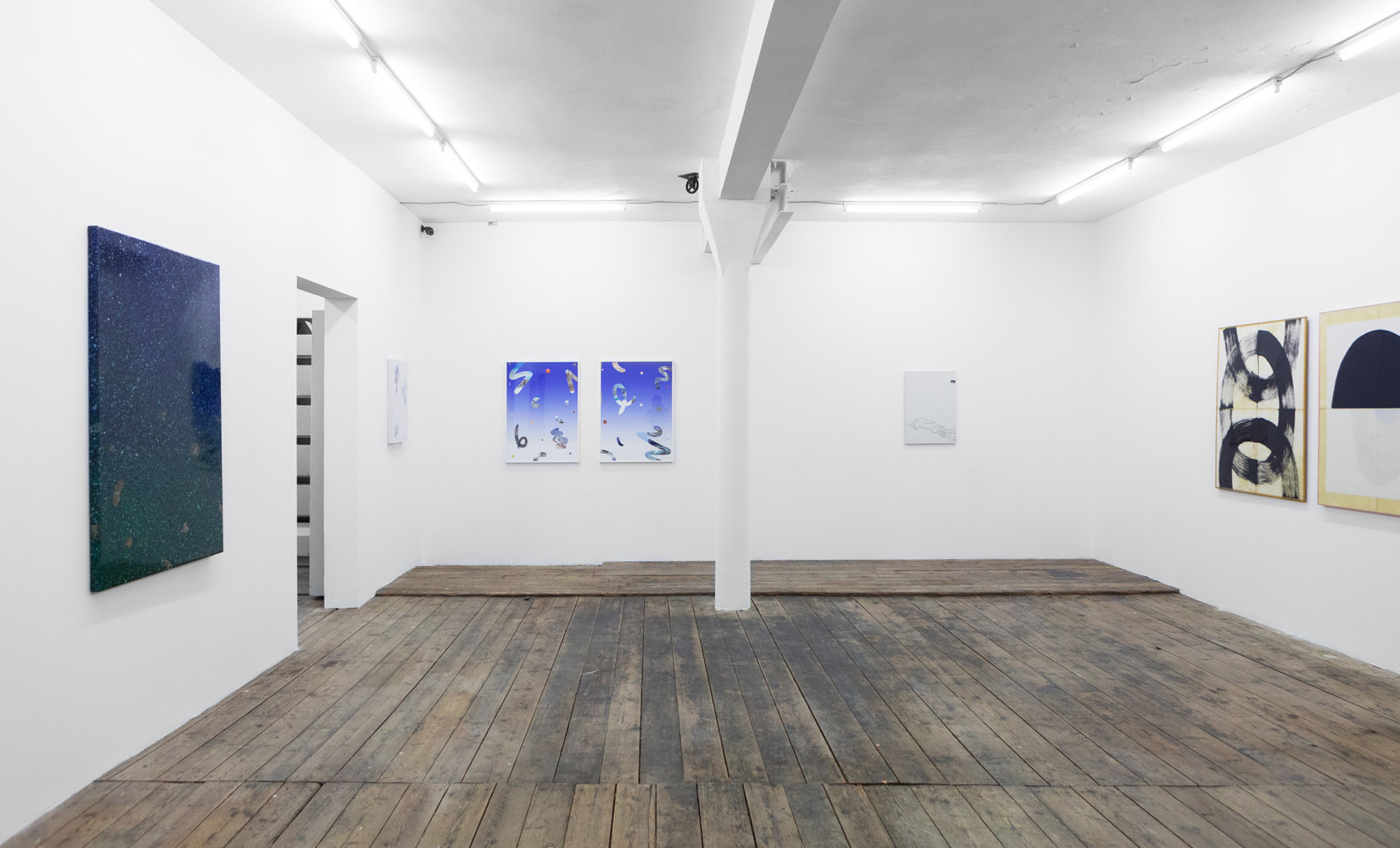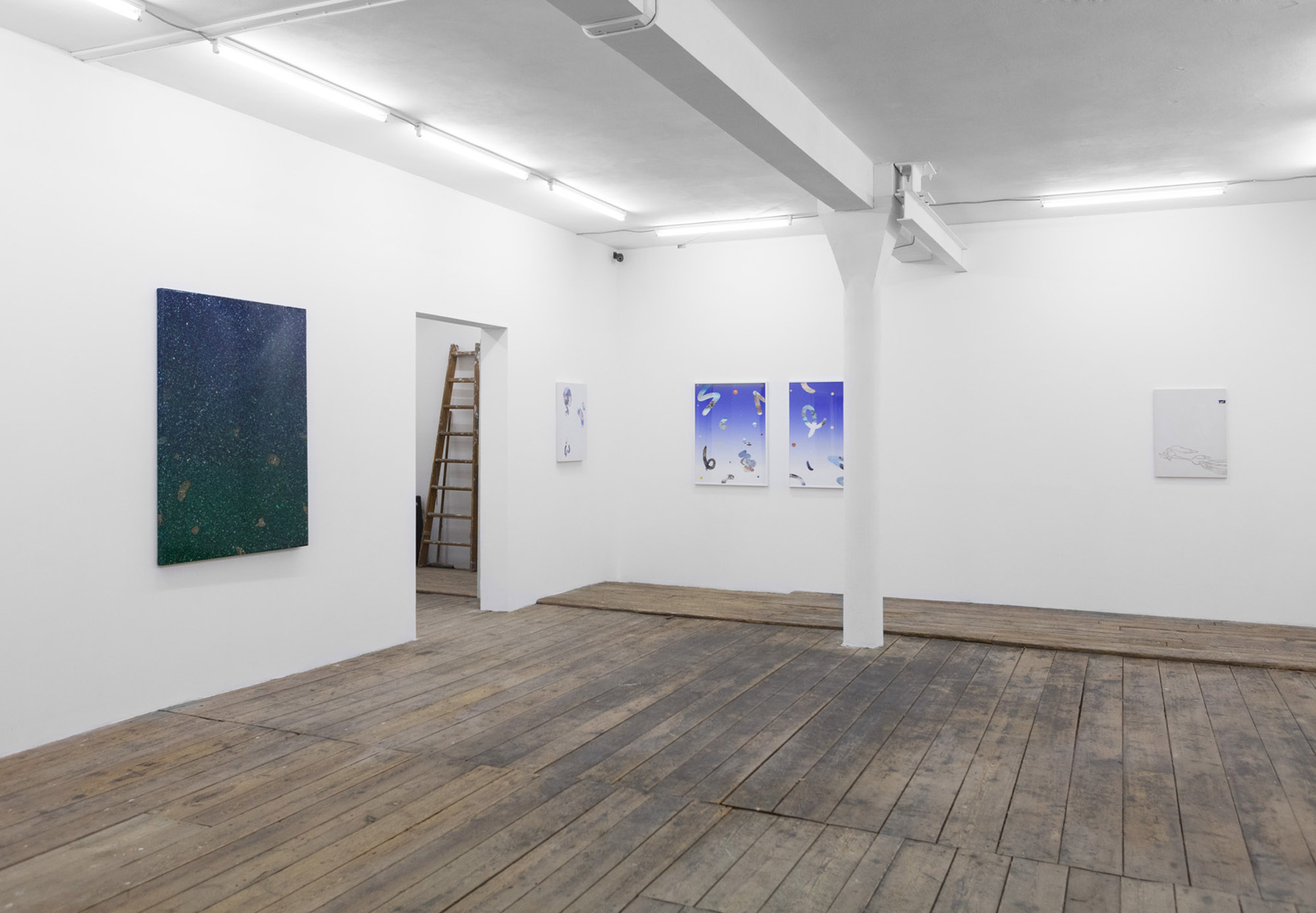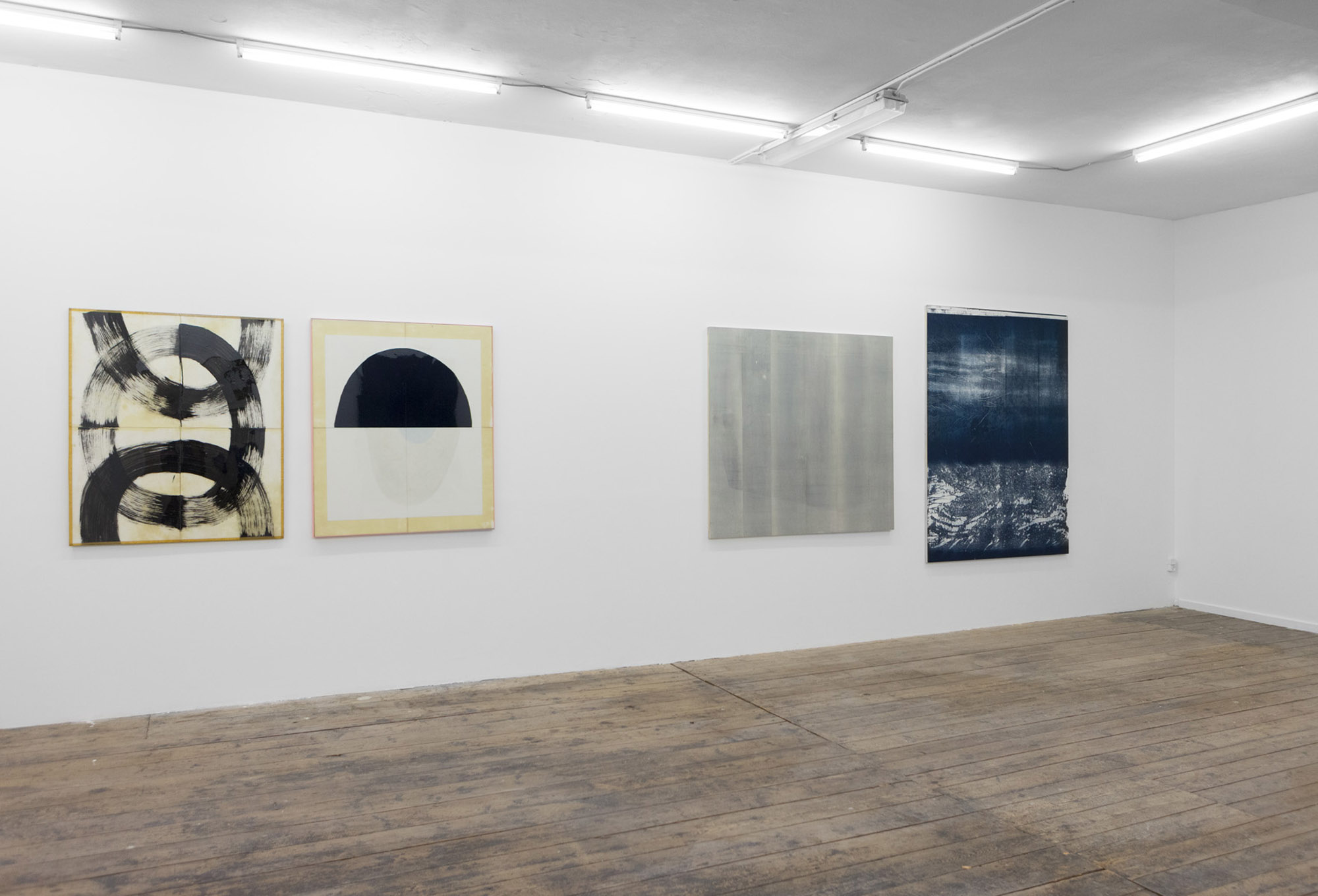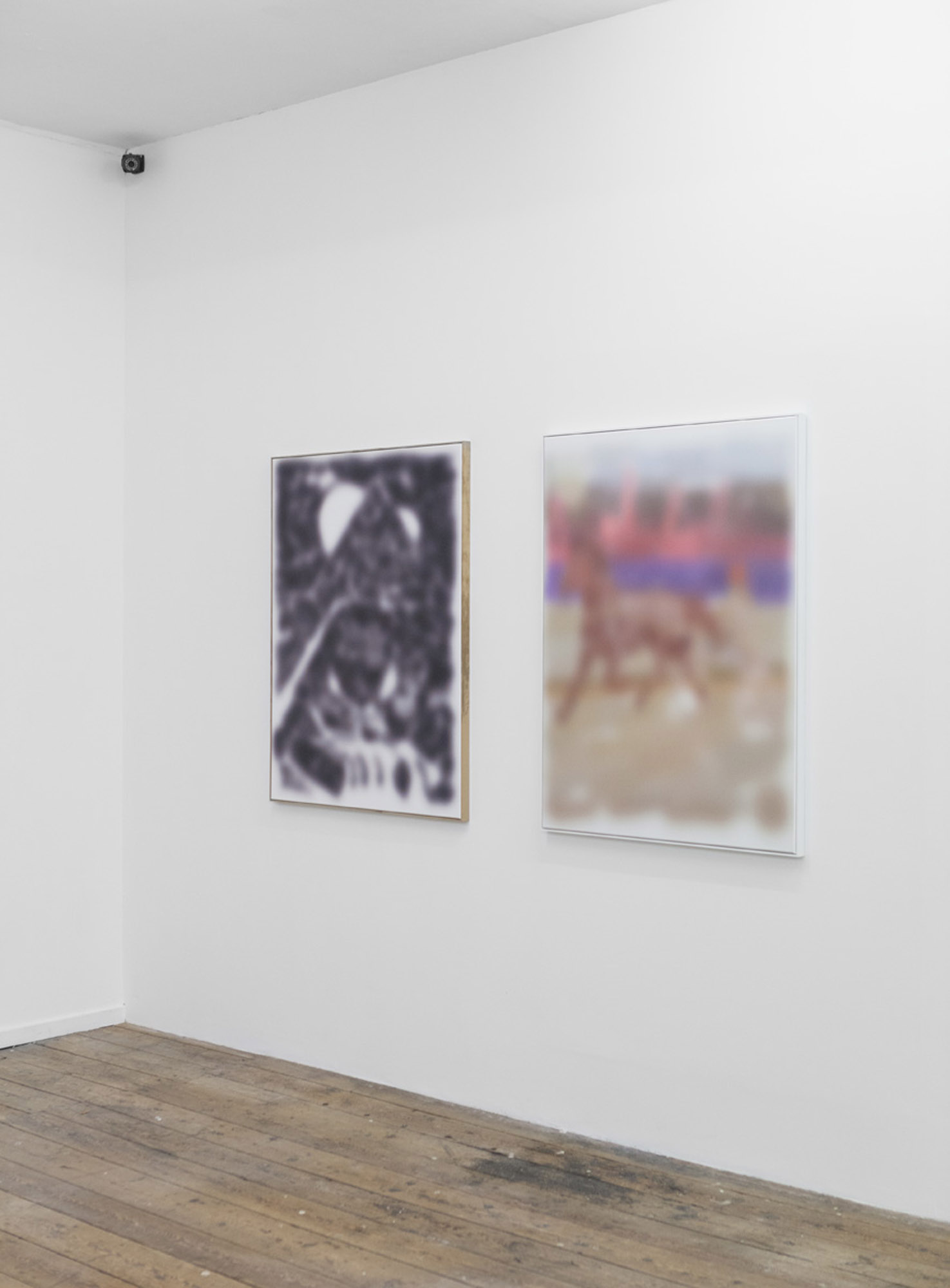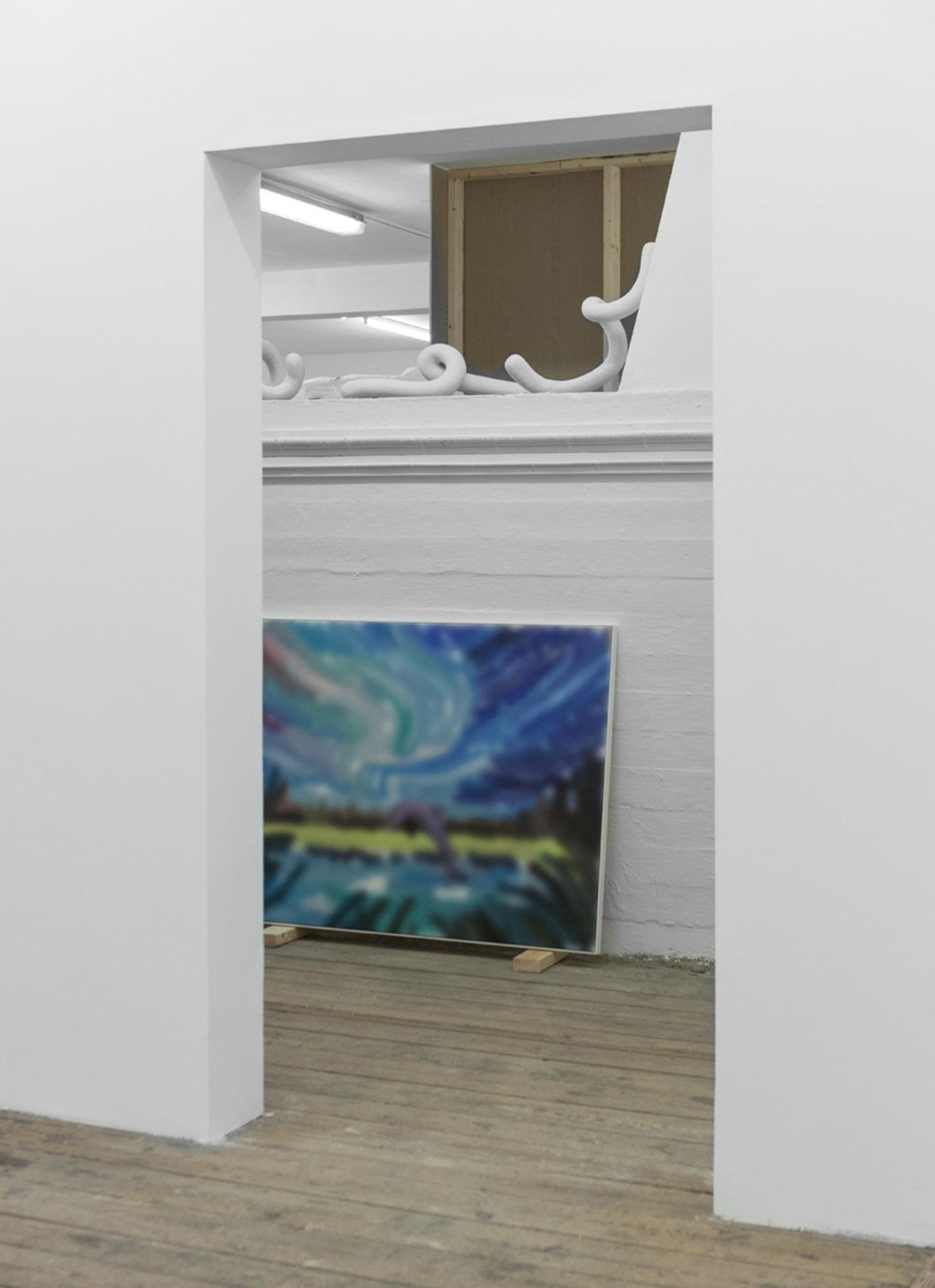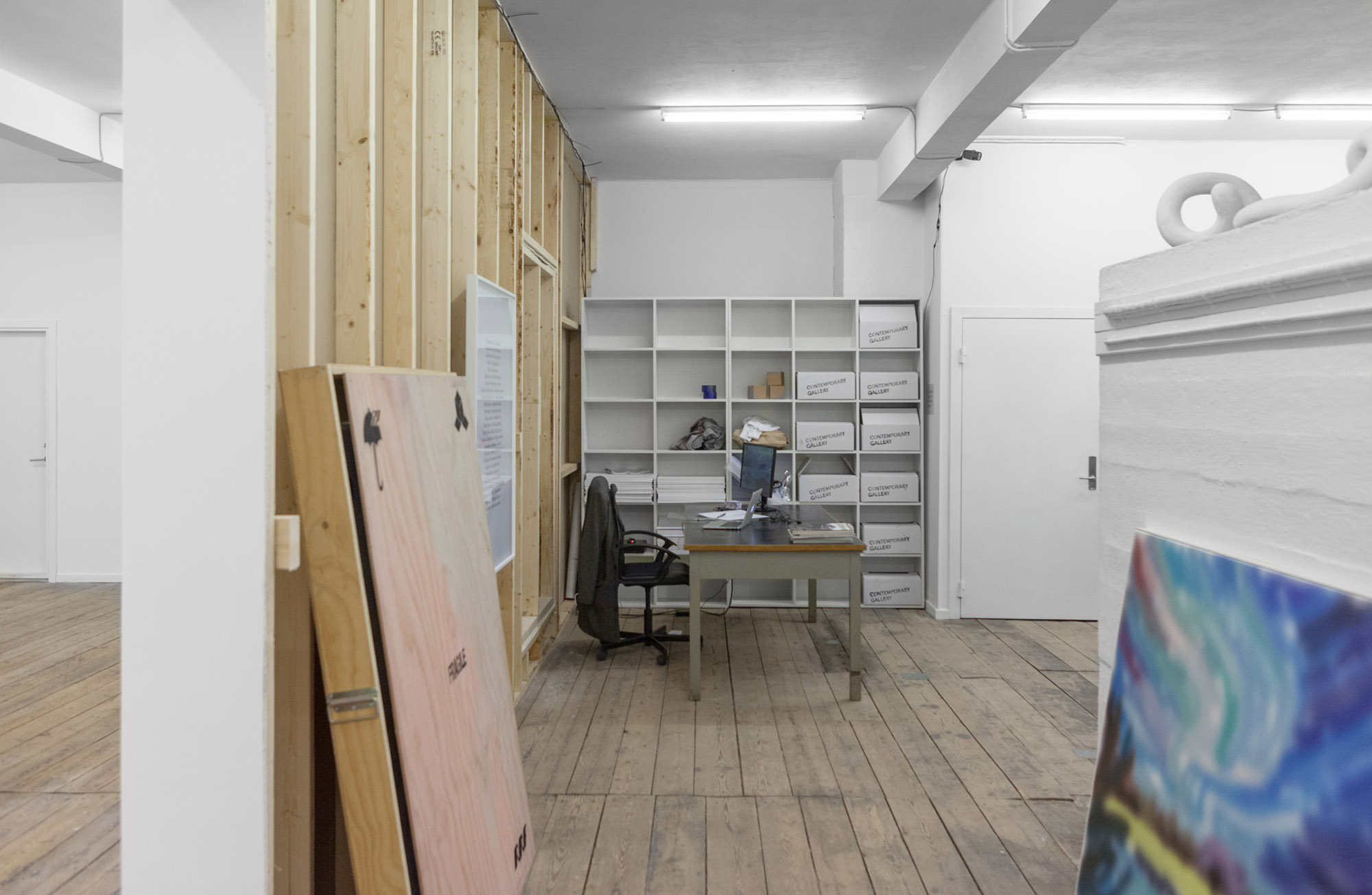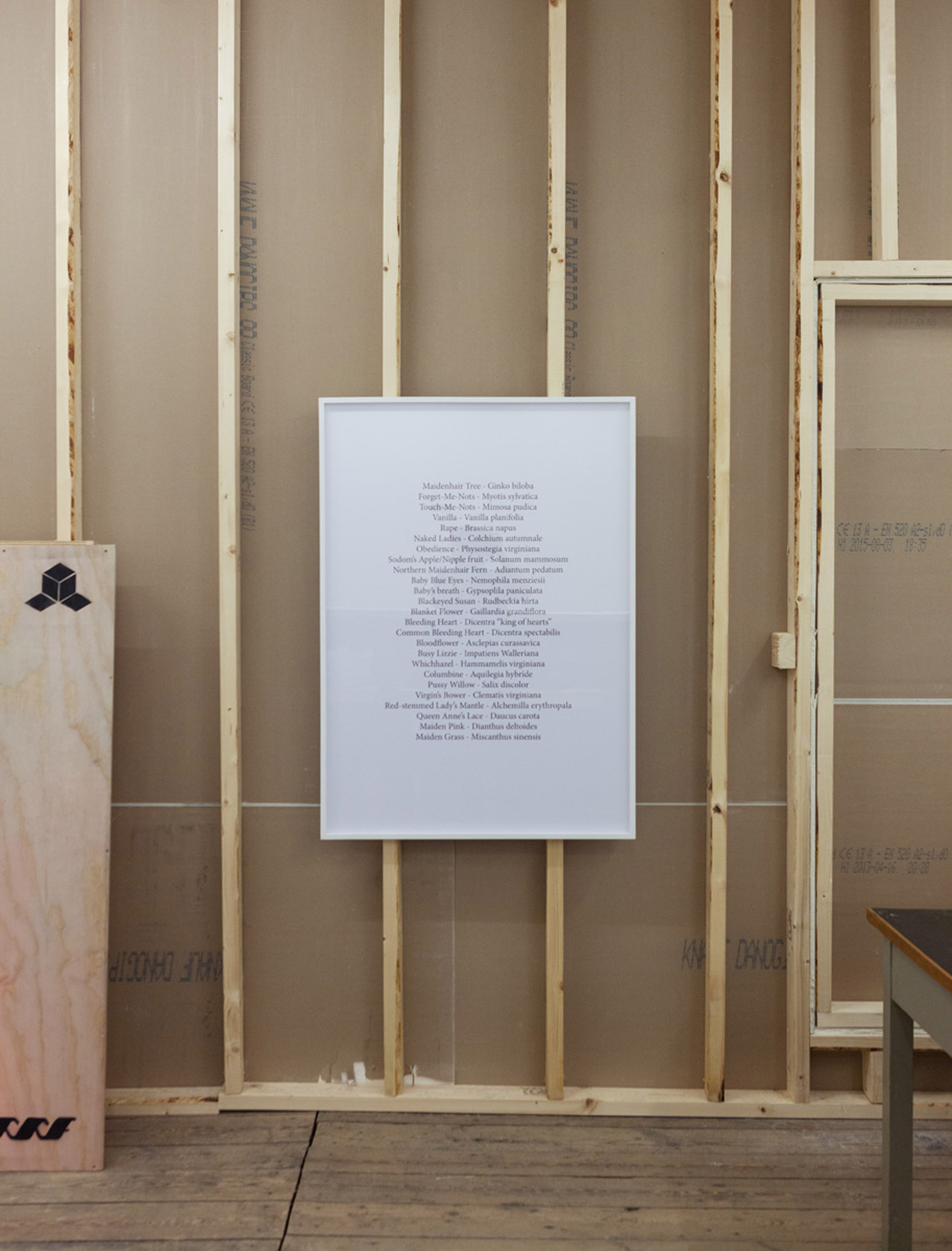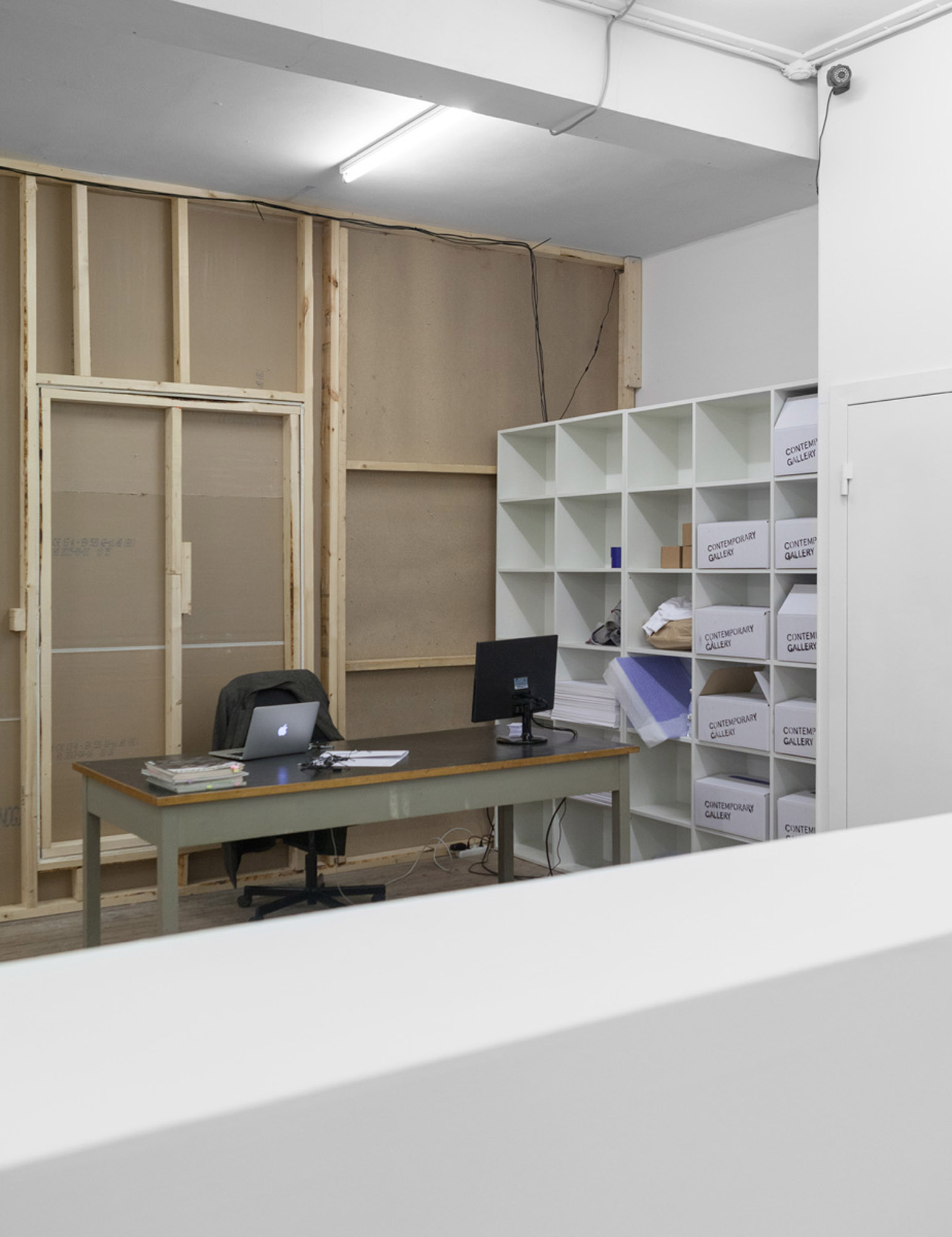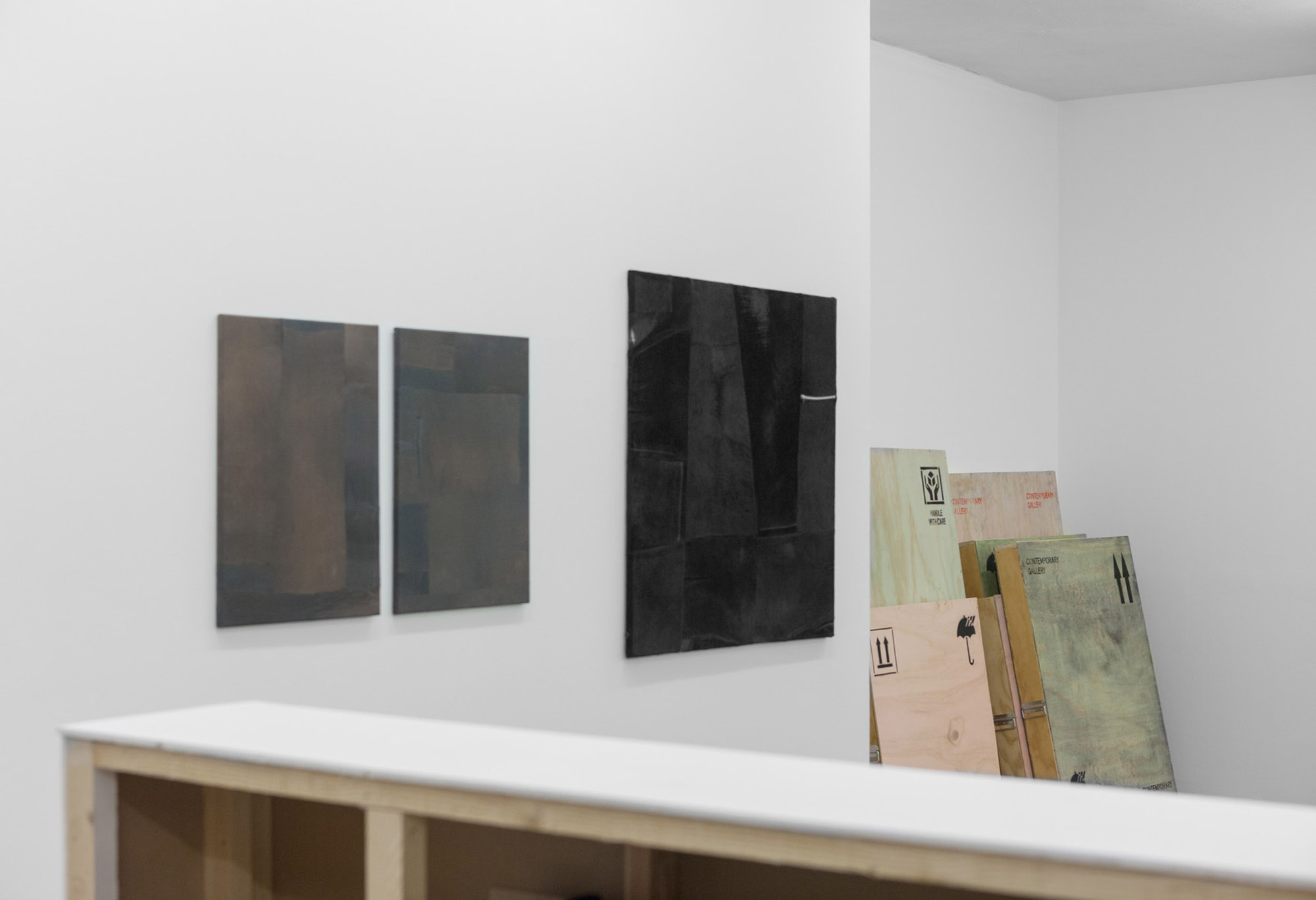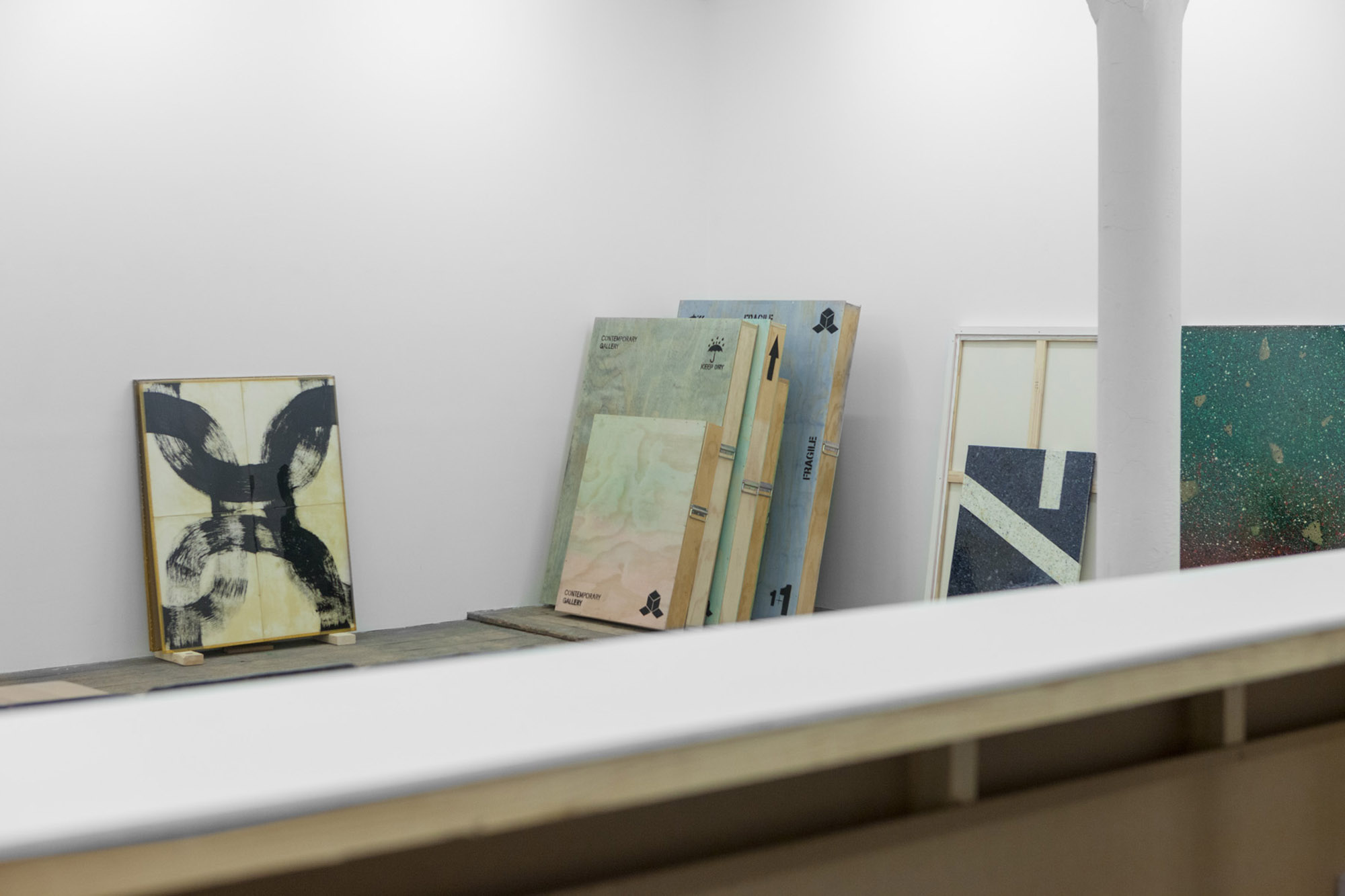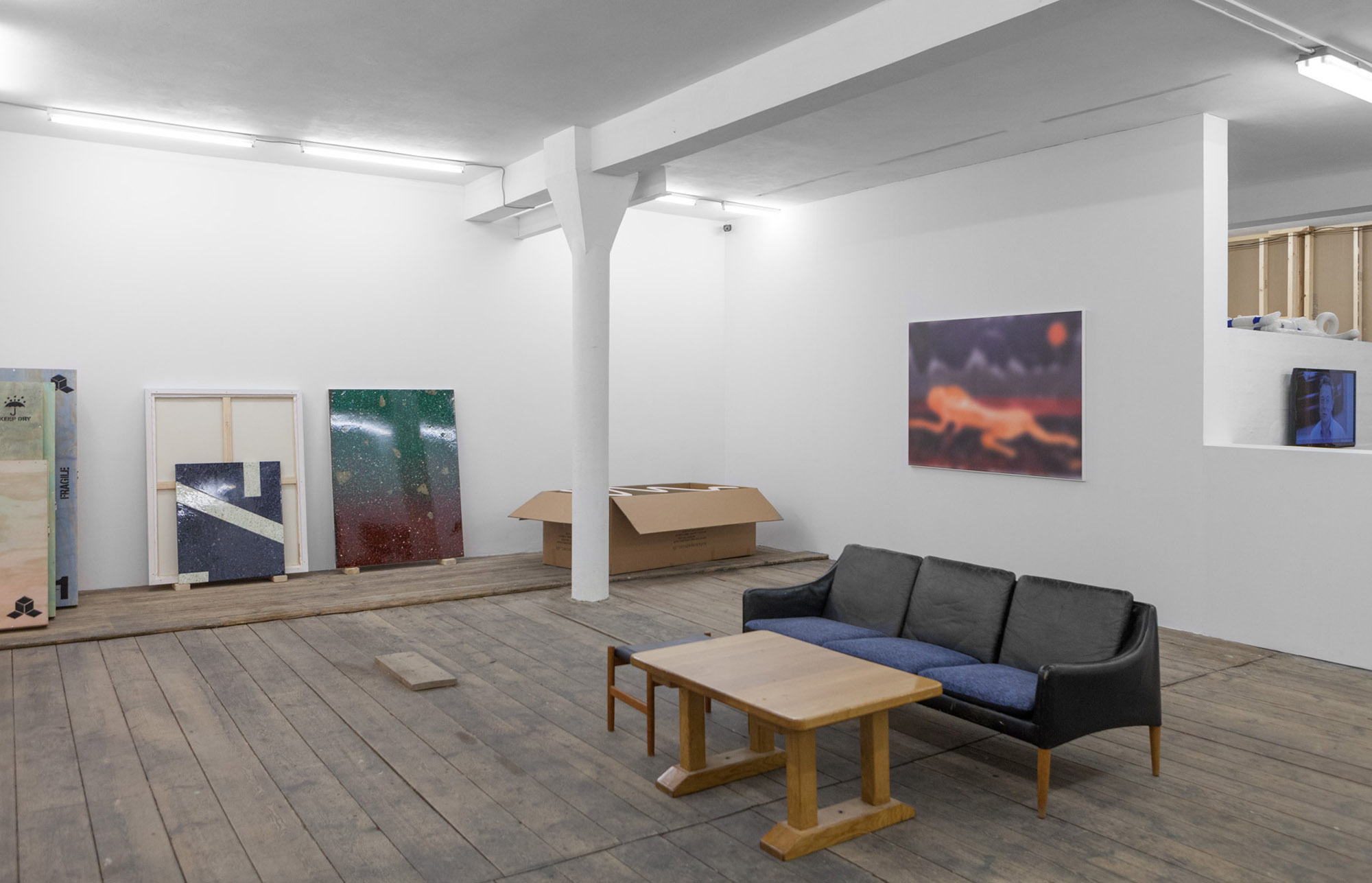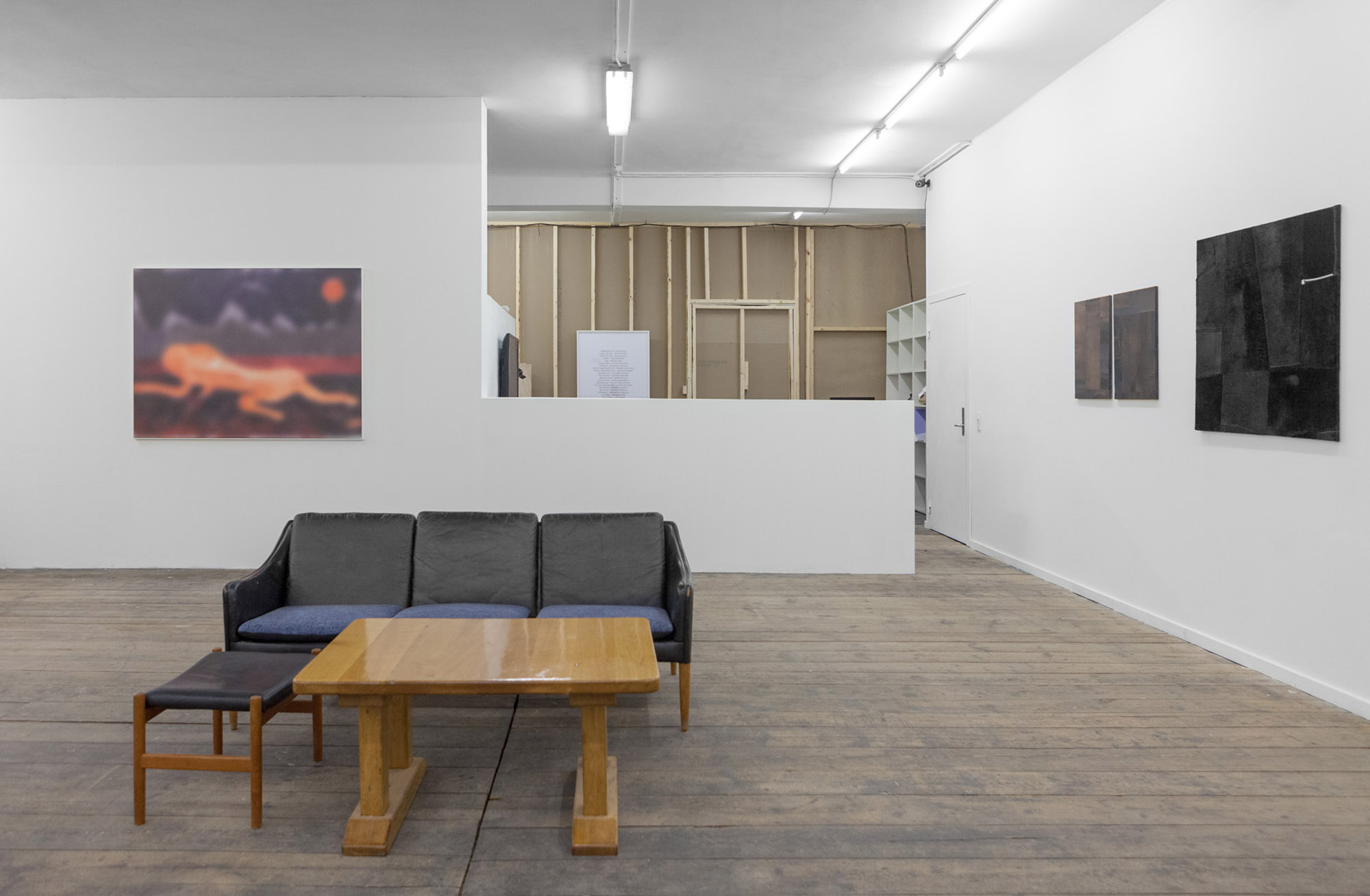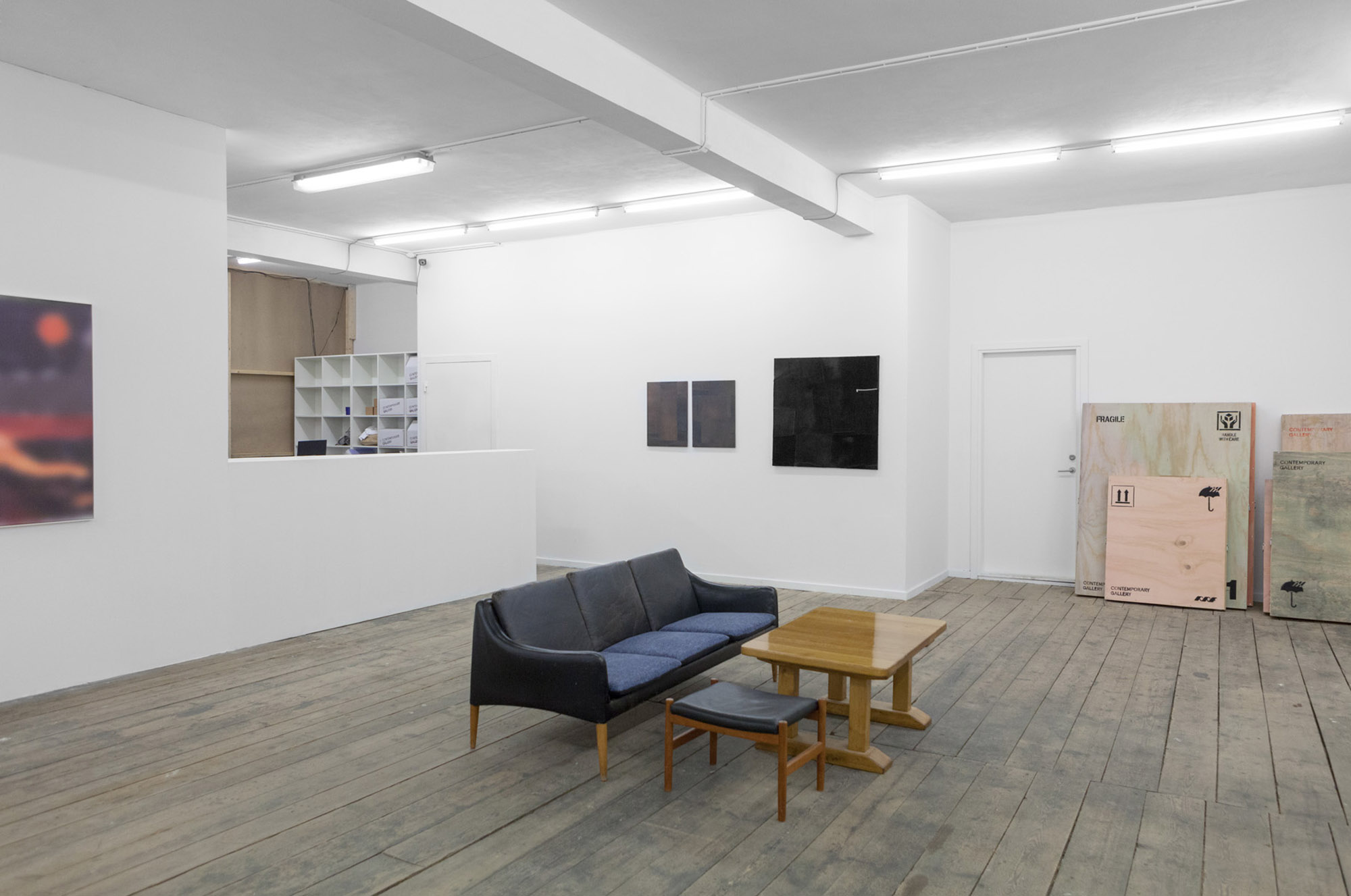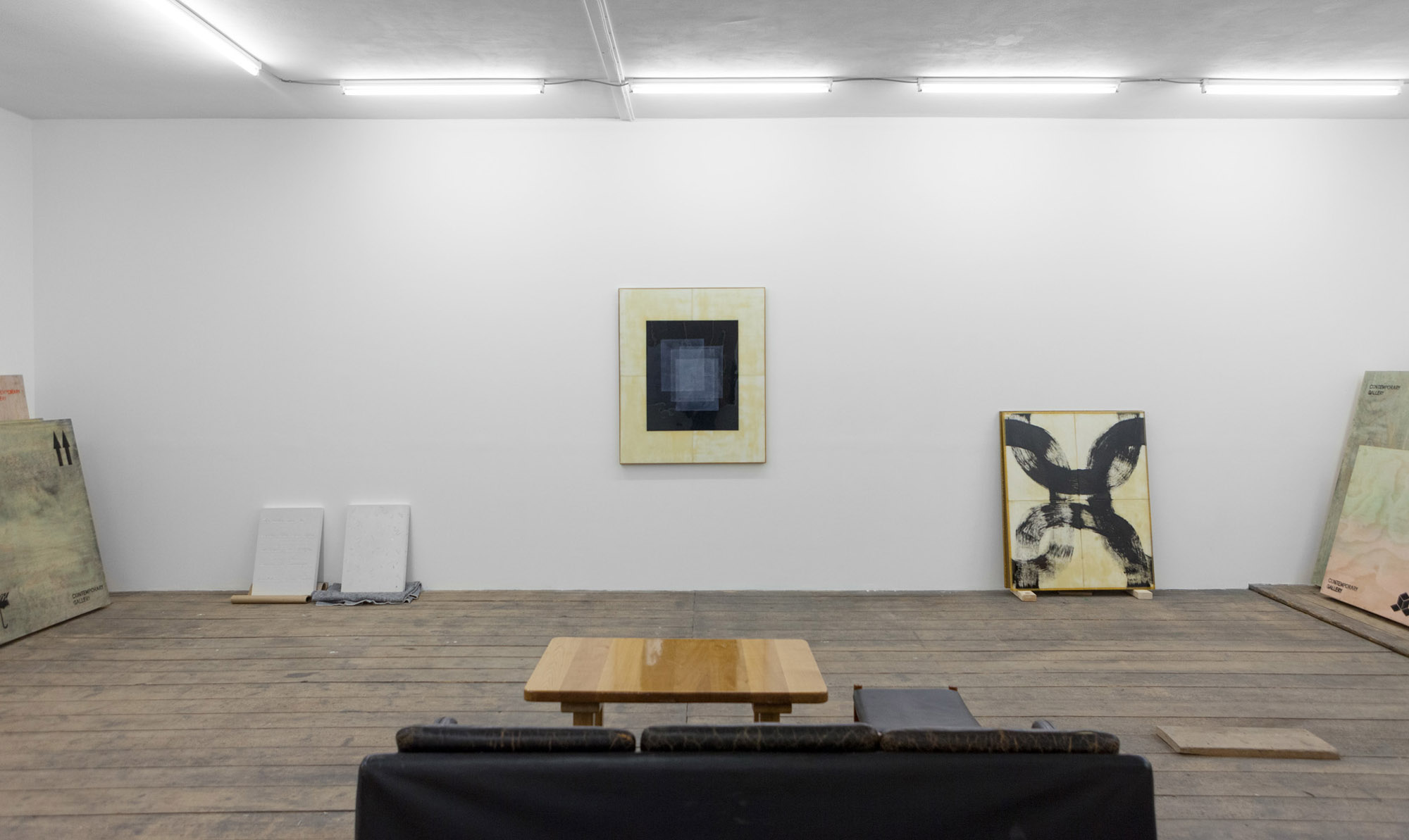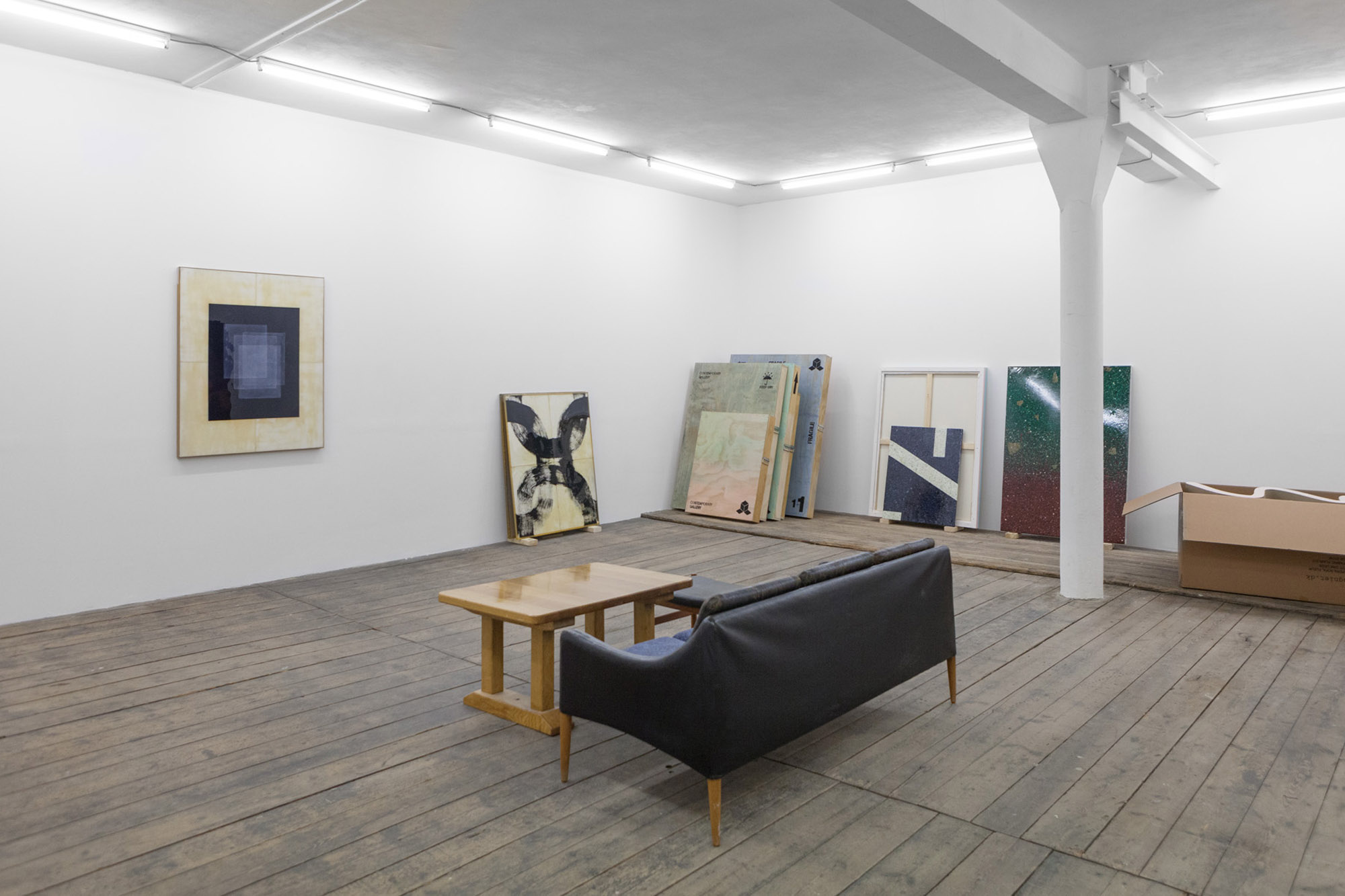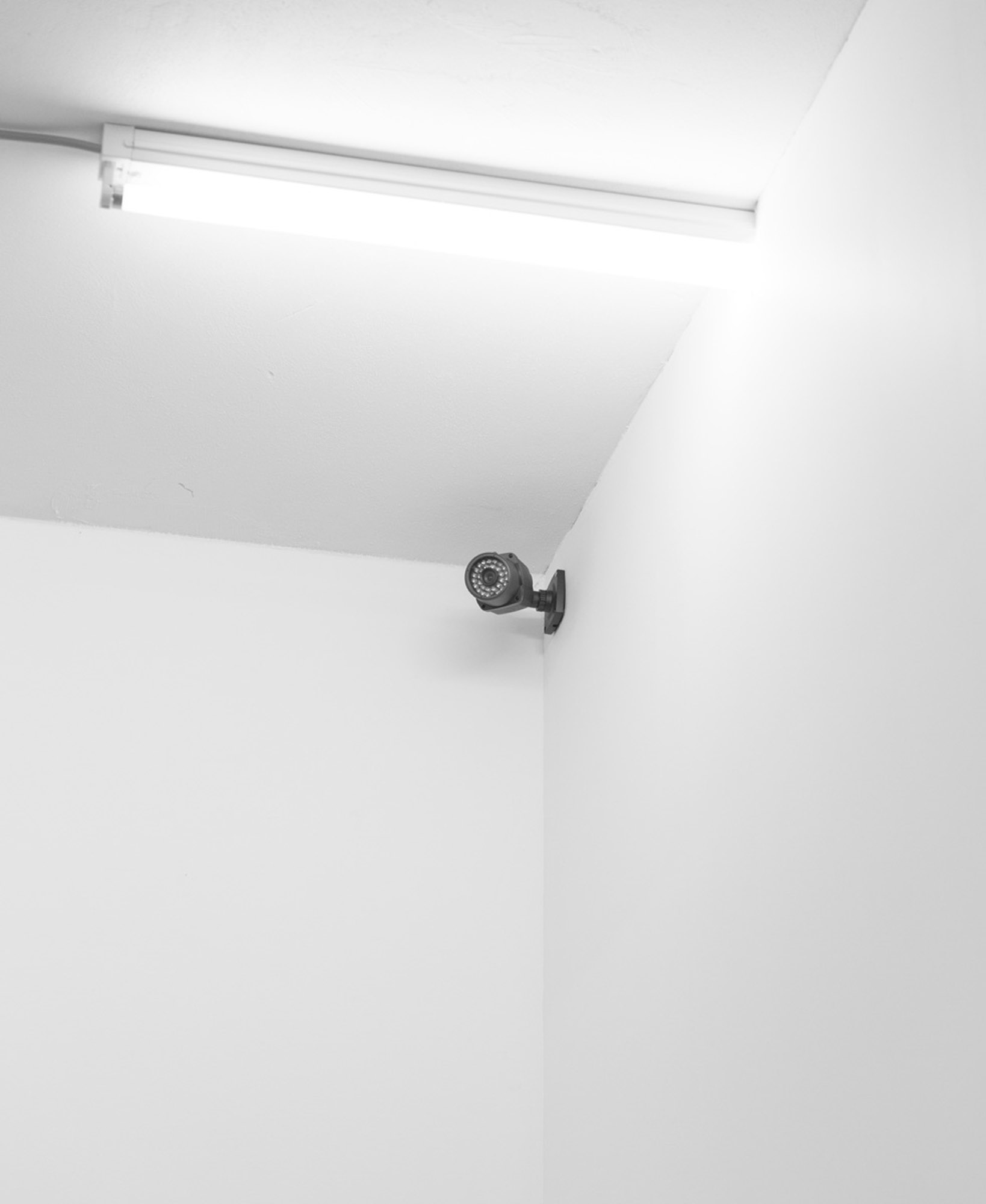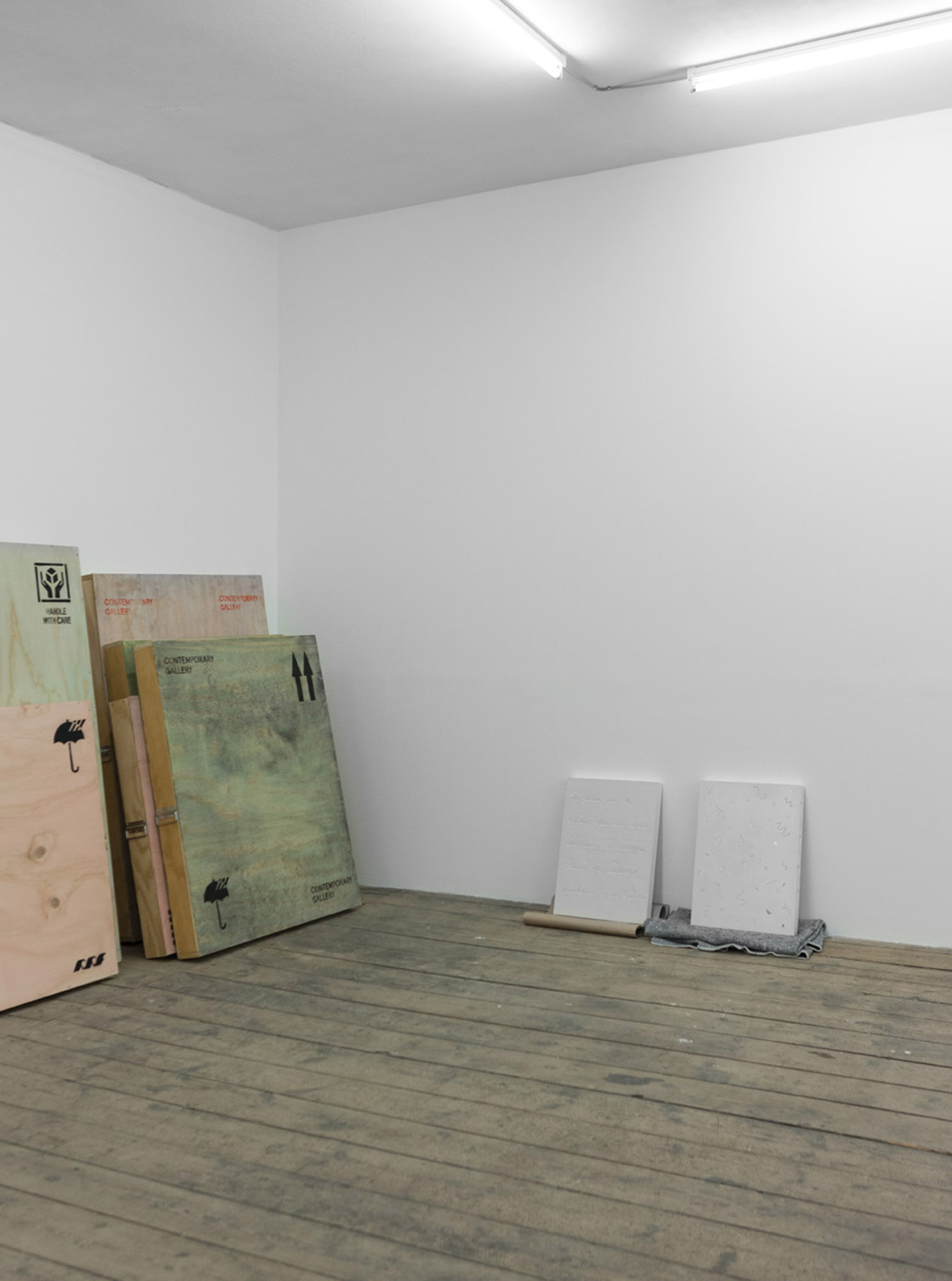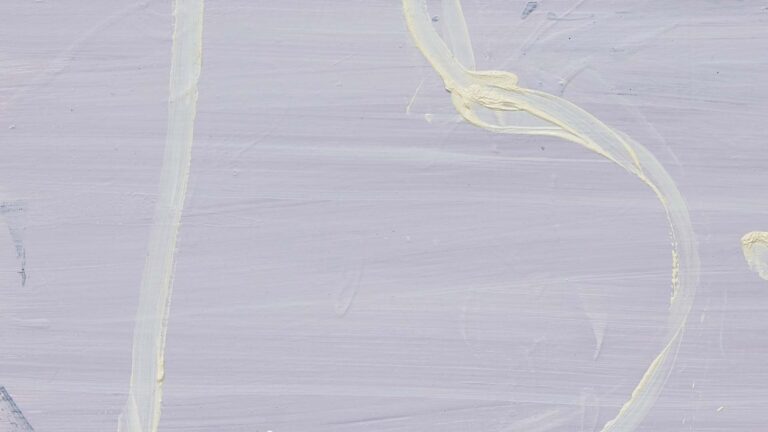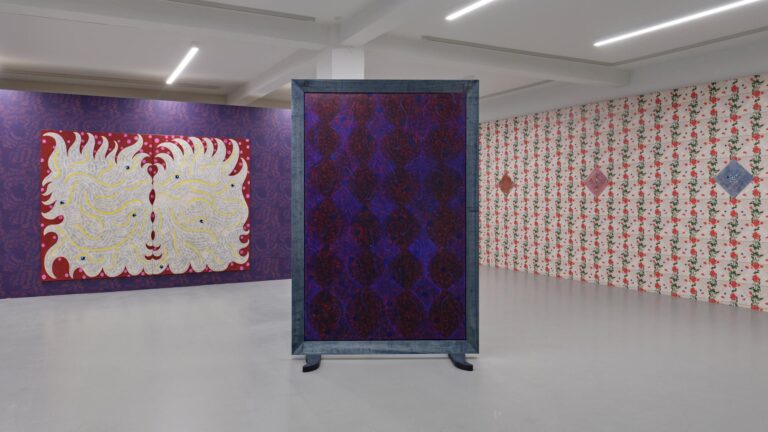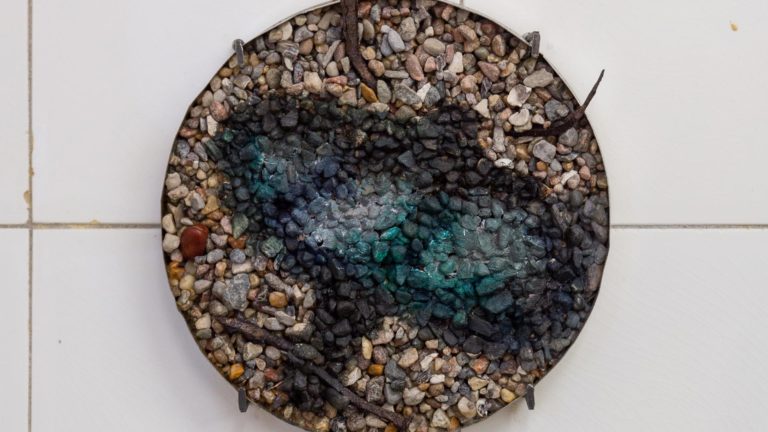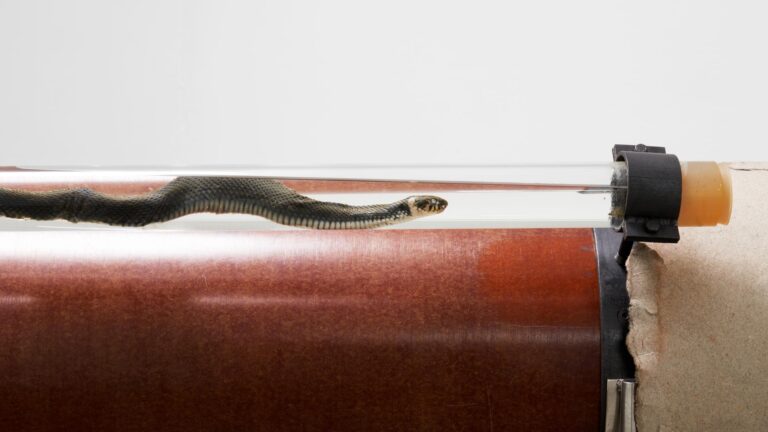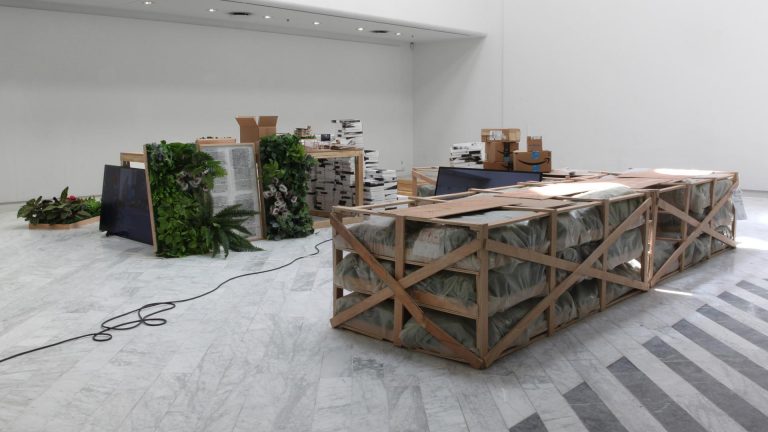Artist: Jonas Lund
Exhibition title: Jonas Lund’s Contemporary Gallery
Invited by Contemporary Gallery: Moa Alskog, Mads Lindberg, Karl Patric Näsman, Jon Erik Nyholm, Camilla Reyman, Viktoria Wendel Skousen, Sif Itona Westerberg
Venue: New Shelter Plan, Copenhagen, Denmark
Date: October 9 – November 7, 2015
Photography: images copyright and courtesy of the artists and New Shelter Plan, Copenhagen
New Shelter Plan is a non-profit based in an old Carlbergs storage building in Copenhagen. The curatorial premise for a series of exhibitions is for invited artists to reflect on the division of the 185m2 exhibition space into accessible and inaccessible areas divided by a wall partition. The invited artists all deal with themes of access and restriction within their practice and are invited to challenge and expand on the concept within the space. The response of artist Jonas Lund is an installation replicating a front and back room of a commercial art gallery. A wall separates one third of the space which will be the front room exhibition space,while two thirds of the room is devoted to a back room for office,storage and behind the scenes logistical and networking operations.The internal infrastructure of the gallery has dictated the division of space via its proportional volume of activity.
The installation by Jonas Lund is a gallery space as a piece, which will put forth an group show including 6 Copenhagen based artists and one Stockholm based. The title for the installation, and the name of the gallery housed within New Shelter Plan is Contemporary Gallery. The front room will host the exhibition that the Contemporary Gallery puts forth titled “Inaugural Exhibition”, and the backroom will have an office installation, storage, and custom made shipping crates as containers for the works in the show. The entrance to the back room is accessible within the front room. There, you will enter into the back of the office, gaining a behind the scenes entrance to the backroom and the typical gallery operations. Contemporary Gallery looks at the nature of the gallery as a space divided by what goes on in the front and backroom: how value is created, mediated, evaluated and transported, how the logistics are dealt with, and in extension, the possible ‘manipulations’ going on in the back room.
Much has been said about the massive expense of museum architecture, prioritised over the budget for programming exhibitions within it. Much has been said about art fair tourism––that the horror of exorbitant wealth partitioned from political problems of the host city, may be a microcosm for the reality outside the tent. The particularities of these spaces, the white walls, are meant to simulate an art object’s estrangement from the particularities of place. In effect, these elements play a significant role within the circulation and presentation of art today. The neutral white space was devised for art which required to be set within places disguised as pure space. Consequentially, spatially conscious art forms began to respond to these sterilised and tightly sealed environments.
More is being said about the layers of administration which need to be financed in order to translate an artist’s ideas to the broader public. These layers of administration act as a liaison between producers of art and power. So many people are dependent on the production of art by artists in the form of an exhibition. From curatorial programs to art magazines, volumes of activity circulate before, during, and after, the moment we are notified that art has been made.
Emails, installers, schedules, images, in-progress images, the email announcement, install shots, photoshopping, shipping, work getting stuck at the border, Switzerland, preventing work from getting stuck at the border, art fair applications, mockup of a potential booth exhibition, INSTAGRAM, collectors, collectors paying, PDF’s, shipping, crates, what to do with all these crates, consignment agreements, percentages, certificates of authenticity, neutral monitors, do we know how to install this? and more emails, other stuff that we have to be vague about, normal press release or arty press release? A light is out, no more post-its. Cc to loop you in, Bcc just so you know. Best, All best, Let me know if you have any questions, Feel free to ask any questions, beer.
The contemporary in Contemporary Gallery focuses on the gallery as a space that operates not just to house autonomous artwork made by artists, but as a facilitator for a network of operations made around an artists practice. The life of an artwork is not just created within the moment of creative production, but continues within its circulation online, in its collector network, critical reception, and place within the ecosystem of logistical operations.
Jonas Lund’s previous work has experimented with art world databases for optimising artistic production. The project FOMO featured works which were the result of a computer algorithm written by Lund. By analysing and categorising a wide range of artworks by contemporary artists, a set of instructions were generated explaining how to make the most successful works of art. Projects like Flip City attempted to track the network which artwork circulates beyond the exhibition by installing a GPS tracking device on the stretcher bar of forty paintings. Gallery Analytics tracked every wifi enabled device moving around in the exhibition area in real time, providing an analysis of visitors’ movement in the space, used to determine how well the works in the exhibition performed.
In Projected Outcomes, Lund applied the idea of transparency to the logistical operations of an institutional exhibition. Based on the information exhibition sponsors use to evaluate exhibitions, the artwork manually tracked the exhibition’s ‘Big Data’. From algorithms for art production to value mined by critical reception, the project Studio Practice involved transforming the gallery into an art production line where hired assistants produced work inspired by a guidebook created by Lund. Works were reviewed online by an advisory board consisting of artists, art advisors, gallerists and collectors, assessing the work so that Lund could better decide whether the work should be signed or destroyed.
Jonas Lund earned a MA at Piet Zwart Institute, Rotterdam (2013) and a BFA at Gerrit Rietveld Academy, Amsterdam (2009). He has had solo exhibitions at Steve Turner, Los Angeles (2015, 2014); Boetzelaer|Nispen, Amsterdam (2014); Showroom MAMA, Rotterdam (2013); and has had work included in numerous group exhibitions including at Eyebeam, New York; New Museum, New York, XPO Gallery, Paris; Van Abbemuseum, Eindhoven, Witte De With, Rotterdam, De Hallen, Haarlem and the Moving Museum, Istanbul. His work has been written about in Artforum, Artslant, Rhizome, Huffington Post, Furtherfield and Wired.
Text by Lucy Chinen
Mads Lindberg, DMT, 2015
Mads Lindberg, keinehaare, 2015
Mads Lindberg, ghostrider, 2015
Moa Alskog, Fram, 2014
Karl Patric Näsman, Marron Red/Blueberry Purple with Wooden Panel, 2015
Karl Patric Näsman, Forest Green/Deep Blue, 2015
Camilla Reyman, Guilty Pleasure #1, 2015
Camilla Reyman, Guilty Pleasure #5, 2015
Camilla Reyman, Guilty Pleasure #6, 2015
Sif Itona Westerberg, Perforated Landcape I, 2015
Sif Itona Westerberg, I have Forgotten how to Navigate by the Stars, 2015


